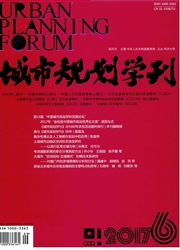

 中文摘要:
中文摘要:
为厘清我国“城市病”的体制性成因及其作用机理。从而为治理“城市病”提供对策建议。这些体制性成因,包括干部选拔机制和政绩考核体系、财税体制、土地制度、规划体制、中央地方关系,通过影响城市政府的行为方式而成为我国城市发展特殊的动力机制,也成为我国“城市病”特有的体制性成因。在对这些体制性成因的作用机理进行分析的基础上,主要从缓解我国“城市病”的角度出发逐一提出了改革的思考与建议。
 英文摘要:
英文摘要:
This study aims to clarify the institutional causes of China's 'urban disease' and propose solutions. The institutional causes summarized in the paper include cadre selection process, assessment system for political achievement, fiscal and taxation system, land system, planning system, and central-local relations, etc. By influencing the behaviors of municipal government, these factors produced excessive incentives for cities to pursue urban development, a cause of many urban diseases in China. Based on such an analysis, this paper puts forward some thoughts and suggestion on gradual reforms in the future to help mitigate China's 'urban diseases'.
 同期刊论文项目
同期刊论文项目
 同项目期刊论文
同项目期刊论文
 期刊信息
期刊信息
